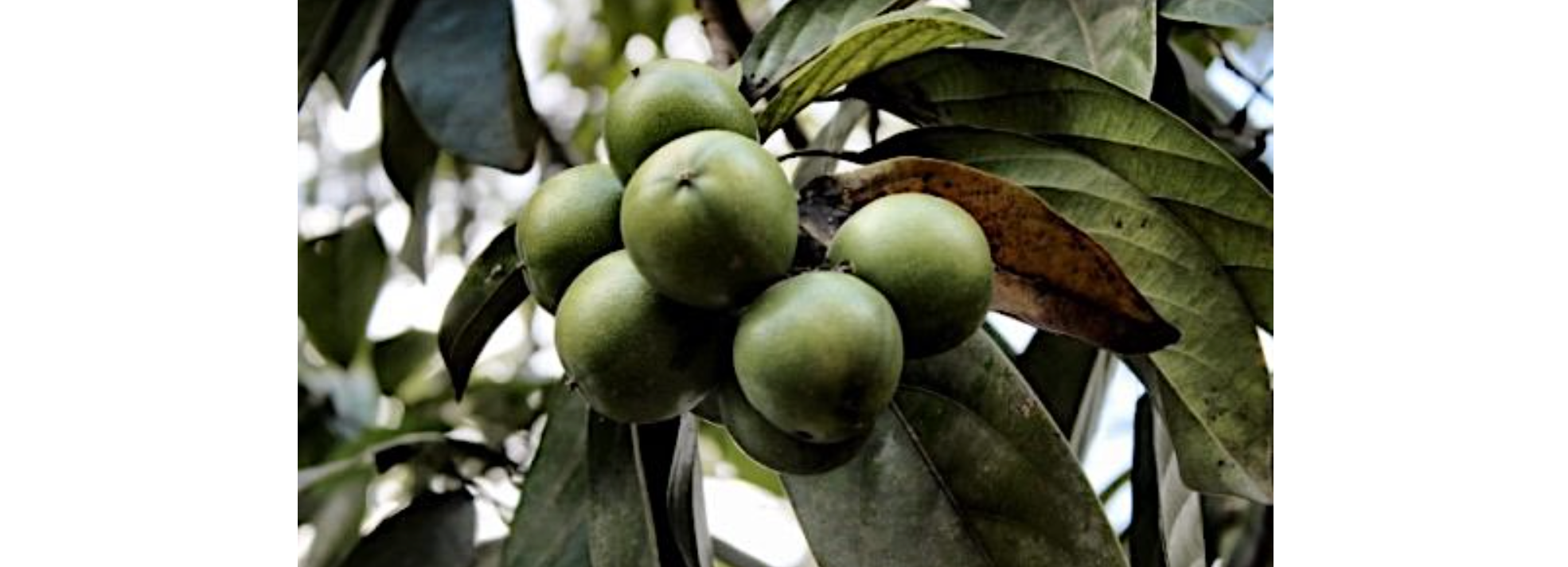WHAT IS CACAY OIL?
Cacay oil has been called a "miraculous oil" and "Amazonian gold, one of the Amazon's best kept secrets and superfood. Cacay nut oil is native to the Brazil's Amazon forests, Colombia, Peru and Venezuela. Cacay nut oil is an incredible, nutrient dense plant, popular for its incredible anti-aging properties and its impressive antioxidant profile.
Cacay oil is an hero oil, it has 3x more of antiaging Retinol (Vitamin A) and 50% more Vitamin E than the famous Rosehip oil and twice as much Linoleic acid (Vitamin F) than Argan oil. In fact it has the highest linoleic acid content of any plant oil. Making this a very beneficial facial oil. It's also one of the most sustainable ingredients in the world , not to mention it's almost odorless and super light weight and easily absorbs into the skin.

CACAY OIL SKIN BENEFITS?
An incredible multitasker, Cacay Oil is a regenerative oil, rich in skin enriching vitamins and fatty acids that it is currently considered to be the best ingredient for natural anti-aging skin care products.
Cacay Oil has plenty of naturally occurring Retinol (Vitamin A) that has been clinically proven to help reduce wrinkles and fine lines, it stimulates collagen production and elasticity, promotes cells regeneration and improves the skins smoothness and suppleness and rebuilds and replenishes the skin. Cacay Oil is also rich Vitamin E that protects the skin against the harmful effects of free radicals, which are the main cause of aging. Also present within this new oil is high levels of essential omega-6 fatty acid, Linoleic Acid which plays a vital role in the skin's barrier function, is an anti-inflammatory, very nourishing and has hydration benefits.
Studies have also shown that people with acne have abnormally low levels of linoleic acid (omega-6's) in their skin, while oily skin also indicates a linoleic acid deficiency. The benefits of applying linoleic acid to oily and acne-prone skin have been long proven by scientific research. One such study saw a 25% reduction in microcomedones (clogged pores) after just one month of treatment.
Cacay Oil is mainly known for its ability to help reduce signs of aging and it also contains the molecules in a more stable and non-irritating form, making it suitable for all skin types. In a four week study, Cacay Oil was applied twice daily, 100% of participants saw an increase in hydration and firmness, while 85% said their skin felt smoother and more supple.
At KYOMI SKIN, because of Cacay oil's impressive anti-oxidant profile, they replaced argan oil and rosehip oil with Cacay oil in some of their formulations due to it's a superior oil and antioxidant profile.
CACAY OIL HAIR BENEFITS
With its high content of strong antioxidants, essential fatty acids and vitamin E, the benefits of cacay oil naturally help increase hair’s elasticity and consistently restores shine to dull, lifeless hair. Cacay oil for the hair leaves it very soft, shiny, hydrated and nourished with each use. It's excellent for dry ends and frizzy hair.
CACAY SUSTAINABILITY
The cacay harvesters rates high in the sustainability scale because nothing harvested goes to waste. Every part of the Cacay nut is used, from it's outer shell to its meat and everything in between. Locals have long harvested Cacay nuts, using the dried meat to create Cacay flour or Cacay nut milk for use in cooking. The inner peels of the nuts are traditionally used as animal feed or fertilizer, and the outer shells are traditionally burned as fuel for heating and cooking.
CACAY FOR THE ENVIRONMENT
Cacay is a reforestation crop. The cacay tree captures large amounts of Carbon Dioxide (CO2) from the atmosphere and it constantly sheds its leaves and improves soil by doing so. The cacay trees recently have been widely planted to repair the areas that have been impacted by deforestation. Wild forest fires and excessive farming have lead to deforestation.
Supporting Cacay farming will increase the bio-diversity and reduce the carbon footprint.

